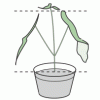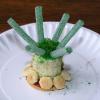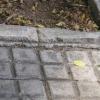Search Results
Showing results 1 to 7 of 7

Do Plants Need Light?
Source Institutions
In this food science activity, learners conduct an experiment that demonstrates the importance of light to plants.

Designer Seeds
Source Institutions
In this activity, learners will examine a variety of seeds, describe them, and determine how they are dispersed.

The Carbon Cycle and its Role in Climate Change: Activity 2
Source Institutions
In this activity (on page 7), learners explore the meaning of a "carbon sink." Using simple props, learners and/or an educator demonstrate how plants act as carbon sinks and how greenhouse gases cause

Build a Coral Polyp
Source Institutions
In this activity, learners build one or more edible coral polyps and place them together to form a colony.

Life in the Sidewalk Cracks
Source Institutions
In this activity, learners compare plant and animal life in different habitats including a sidewalk crack and lawn. Learners sort human-made materials and natural materials found in each habitat.
What Does Life Need to Live?
Source Institutions
In this astrobiology activity (on page 11 of the PDF), learners consider what organisms need in order to live (water, nutrients, and energy).

Design a Flower
Source Institutions
In this activity, learners learn about the adaptations that flowers have developed which support pollination. Learners also list their personal preferences (i.e.
